I was chatting with family on Sunday when news broke that Joe Biden had very belatedly granted Ukraine permission to strike targets inside Russia with American-supplied long-range missiles (ATACMS). Moscow will surely respond by threatening to escalate the war, the newscaster warned—and, surely enough, it has.
None of us batted an eye, though. “They’re always making threats,” one relative yawned. The boys at the Kremlin have spent nearly three years crying wolf about what they might do if the U.S. continues to supply Ukraine. If the wolf existed, one might assume, it would have shown up by now.
Even if it does exist, there are good reasons to believe it won’t show up at this late hour. For starters, Russia is in no position to widen this conflict conventionally, having lost somewhere between 400,000 and 700,000 men since 2022. A country reduced to relying on North Korean cannon fodder for its advances isn’t about to threaten Western Europe with tanks and planes.
But if that weren’t enough to deter Vladimir Putin from escalating the war, there’s also this: He’s already won it.
In two months a pro-Ukraine administration in Washington will be replaced by one that’s neutral at best and pro-Russia at worst. Volodymyr Zelensky understands that the shooting will “end sooner” under Donald Trump than it would have under Kamala Harris, not because Trump will bully Putin into a settlement favorable to Ukraine but essentially the opposite. Soon Kyiv will face the agonizing choice of whether to accept a deal that gives Russia most of what it wants or to reject it and keep fighting, futilely, without material American support.
Biden understands that too. He’s doing what little he can in his final months in office to mitigate the appeasement to come.
White House aides told the press that the president approved the use of ATACMS against Russian targets partly “to send a message to the North Koreans that their forces are vulnerable and that they should not send more of them.” But the obvious truth is that this was a leverage play on Kyiv’s behalf ahead of the inevitable concessions a Trump administration will force on Zelensky. The more pain Ukraine can inflict on its enemy in the next two months and the more Russian territory it can grab before peace talks begin, the more it can demand from Moscow at the bargaining table in exchange for relinquishing that land.
Escalation makes sense for Ukraine given the poor position it’s in. Conversely, we might surmise, it does not make sense for Russia. Putin has successfully outlasted not just the Biden administration but, with Trump’s victory, the entire U.S.-led liberal order; all he needs to do is be patient for a few more months and then collect his winnings from a postliberal White House that feels more kinship with Russian fascists than it does with Ukrainian democrats. That means not doing anything outrageous that might disturb his glide path to victory.
So when we hear about Putin signing an order to lower the threshold for using Russia’s nuclear weapons in response to conventional attacks supported by nuclear rivals—i.e. Ukraine using ATACMS supplied by the Pentagon—we should keep on yawning, no?
Not this time, I think. It’s counterintuitive but, with the war on the cusp of winding down, there’s a chance that the wolf might show up at last.
The end of deterrence.
To those who ask, “Why would Putin bother to go nuclear now, after half a million casualties?” I’d answer: Why wouldn’t he?
He’s faced two major deterrents to using atomic weapons since the conflict with Ukraine began. One was the assurance that, if he went that route, the United States and its Western allies would hold Russia entirely morally responsible for breaking the nuclear taboo. The other was the prospect of severe conventional military reprisals by the West, possibly involving U.S. and European air forces intervening in Ukraine to drive the Russians back.
The closer we get to Inauguration Day, the weaker both deterrents get.
If you want to know how the postliberal American right would greet a Russian nuclear attack on Ukraine, look around this week at how the worst people in Donald Trump’s orbit have reacted to Biden’s decision on ATACMS. Trump’s son is bleating about “the military industrial complex” and “World War III”. Mike Flynn, who briefly served as national security adviser during Trump’s first term, wants Kamala Harris to use the 25th Amendment to remove Joe Biden before any more damage is done.
Throughout the war, American populists have assigned moral culpability for escalation exclusively to Ukraine and its Western supporters for resisting Russian fascism and not at all to the Russian fascists who chose to brutalize their neighbors in the first place. Yet, as perverse as that may be, there’s strategic logic to it. Postliberals in the U.S. want to normalize ruthlessness toward liberals and part of the normalization process is muddying the moral waters whenever postliberal regimes abroad behave ruthlessly.
So it’s easy to foresee how Trump’s movement of proto-fascists would react to Russia detonating a small-scale nuclear weapon: They’d blame the Ukrainians, Joe Biden, and hawks in Congress for having “provoked” Moscow by targeting military sites deep inside Russia with ATACMS. For many MAGA types, I think, a nuclear explosion in Ukraine would be treated as nothing short of vindication. See how bad things can get when the “war party” runs Washington?
They’ve done everything they reasonably can do up to this point to provide Putin with moral cover to prosecute the war as viciously as he likes. Knowing that that moral cover would extend to a nuclear strike on Ukraine, dividing the increasingly postliberal West rather than uniting it in outrage, is destined to make him more willing to consider it.
But what about President Trump himself? He’s unpredictable, he despises looking weak, and he has a track record of punishing rogue regimes for using weapons of mass destruction. Might he not react to atomic escalation in Ukraine with the same sort of harsh military reprisal that President Biden would have resorted to?
Unlikely, I think.
Trump’s first administration was a better ally to Kyiv than you would have expected from his endless Putin apologetics. But, as his recent personnel decisions have made clear, his next government will be considerably more depraved than his first. Even the “responsible” hawkish nominees this time aren’t so hawkish after eight years of postliberal degradation, particularly with regard to this conflict.
Trump has also staked a great deal of political capital on the idea of himself as a peacemaker, from meeting with Kim Jong Un as president to brokering the Abraham Accords to promising repeatedly to end the war in Ukraine in one day. And, like his postliberal cronies, he’s not above blaming the victim for a conflict that Russian fascists instigated. As recently as last month, he scolded Zelensky by claiming that he “should never have let that war start.”
We’re talking about a guy who, in 2017, reportedly sought advice on whether to arm the Ukrainians from … Vladimir Putin. Russia won’t be facing unshakable Churchillian resolve on January 20.
Because Trump is obsessed with appearing “strong,” I do think Putin would be running a risk of reprisal if he embarrassed the new president by waiting until after he was sworn in to launch a nuclear strike on Ukraine. It would amount to daring Trump to do something about it. But if he did it shortly before the inauguration, on Biden’s watch, he’d probably escape without major consequences. Biden wouldn’t want to launch a military attack on Russia with the new administration so close to taking over and Trump would almost certainly seize upon Putin’s escalation to pressure Ukraine to sue for peace urgently, making whatever concessions Moscow demands. Joe Biden’s weakness has led to nuclear war! I will fix!
Simply put, with a more sympathetic government poised to take charge in Washington, Russia might have little to lose by going nuclear. So why not do it?
Testing boundaries.
If there’s any head of state who’s more consumed than Trump with being feared by rivals, it’s Putin. The conquest of Ukraine was supposed to be the first step in rebuilding his country’s empire, re-establishing Moscow as a counterweight to Washington and Beijing, and serving notice to Europe that NATO would be tested sooner or later.
Nearly three years and half a million casualties later, Putin’s pretensions of meaningful “strength” are up in smoke. Having struggled to subdue Ukraine, he’s unwittingly demonstrated that imperial Russia is a pipe dream. There isn’t much left he can do militarily to intimidate the Western powers that have turned his “special military operation” into a strategic debacle.
But there is one thing: A nuclear strike inside Ukraine would show Europe that nations that resist Russian influence will pay the steepest possible price and that what Putin lacks in conventional military power he’s willing to make up for with sheer ruthlessness.
And if that strike happened to come during America’s lame-duck period, it would carry heavy symbolic meaning. The fact that Russia was finally willing to break a nuclear taboo that persisted for decades during and after the Cold War, at the very moment U.S. voters had chosen to reelect a Russia-friendly NATO-skeptical postliberal, would quasi-officially mark the end of the Pax Americana.
It would resemble the firing of a starting gun for a new world order in which authoritarian powers throttle their neighbors to whatever extent they can get away with as Western liberal nations look on passively with varying degrees of dismay.
The symbolism would be especially powerful if, as I’ve assumed, Trump is likely to insist on moving forward with (or even accelerating) peace talks between Ukraine and Russia following a Russian nuclear strike. The lesson for rogue regimes would be unmistakable: If you want to gain influence with the United States, do as much damage as you can to our allies and then screech about “World War III” as Washington comes running to the table. You’ll be arguing from a position of strength. Imagine how much more leverage Moscow will have with Secretary Marco Rubio if there’s a mushroom cloud over some Ukrainian city.
There would also be a symmetry in Putin going nuclear around the same time that Trump is preparing to return to office. Here and abroad, in different ways, postliberalism has set its sights on undoing norms that have served the world well by restraining power-hungry lunatics. Both men are moving forward with that project simultaneously.
Trump, for instance, has been president-elect for all of two weeks yet has already unspooled more “creative” ideas on how to consolidate power than most presidents manage in four years. Forget his Cabinet of anti-qualified quacks: There’s talk of him deploying the troops to enforce immigration law, forcing Congress to adjourn so that he can recess-appoint any loyalist stooge he likes, and purging military officers who lack “leadership qualities” because they prioritize obedience to the Constitution over obedience to him. Those who voted on November 5 for cheaper eggs and a stronger border will soon find most of America’s political energy consumed by battles over just how much of a dictator Donald J. Trump should get to be.
Vladimir Putin is a bona fide authoritarian icon of power consolidation, meanwhile, having easily prevailed over the weak institutional defenses of post-Soviet Russia, but his invasion of Ukraine was the most ambitious affront to Western norms of his career. He launched the first major conflict in Europe since World War II and the first Russian occupation on the continent since the Soviets rolled into Czechoslovakia in 1968. If he was willing to go that far to make the point that the old rules are no longer binding, it almost seems fitting that the war he started should end with the nuclear taboo being shattered.
To international fascists, the whole point of a Trump victory is the political license it creates to test the boundaries set by the post-war liberal order. Why would Putin pass on a golden opportunity to test the ultimate boundary on warfare?
Maybe Trump can talk him out of it. “Wind down this war quietly and I’ll quit NATO” might be the sort of inducement that would convince Russia to keep its nuclear pistol holstered.
But even if Putin can be dissuaded from doing something reckless in Ukraine, there’s no escaping the fact that nuclear conflict will be more likely in a world no longer secured by the Pax Americana. Maybe liberal powers in Europe and the Far East can band together and form formidable military coalitions in America’s absence, but some of those countries have their own nascent postliberal movements that are gaining in influence. If your alliance is one German or Japanese Viktor Orbán away from collapsing, it’s not much of an alliance.
The obvious, unavoidable solution in a world without international deterrence is for every country menaced by an authoritarian neighbor to provide their own deterrence by going nuclear. No one is coming to help Ukraine or Taiwan next time; if they want to keep the bad guys off their backs, or at least have a chance of doing so, procuring the means to incinerate millions of civilians in Beijing or Moscow is the only thing that might do it.
The Ukrainian people in particular have learned the hard way that there’s no substitute for nuclear deterrence, an advantage they briefly enjoyed and then gave away in exchange for magic beans from Russia and the United States. It would be the bitterest irony if Putin made them pay the supreme price for disarming themselves, but we’ll all have to get used to bitterness. The postliberal world is a dangerous place.
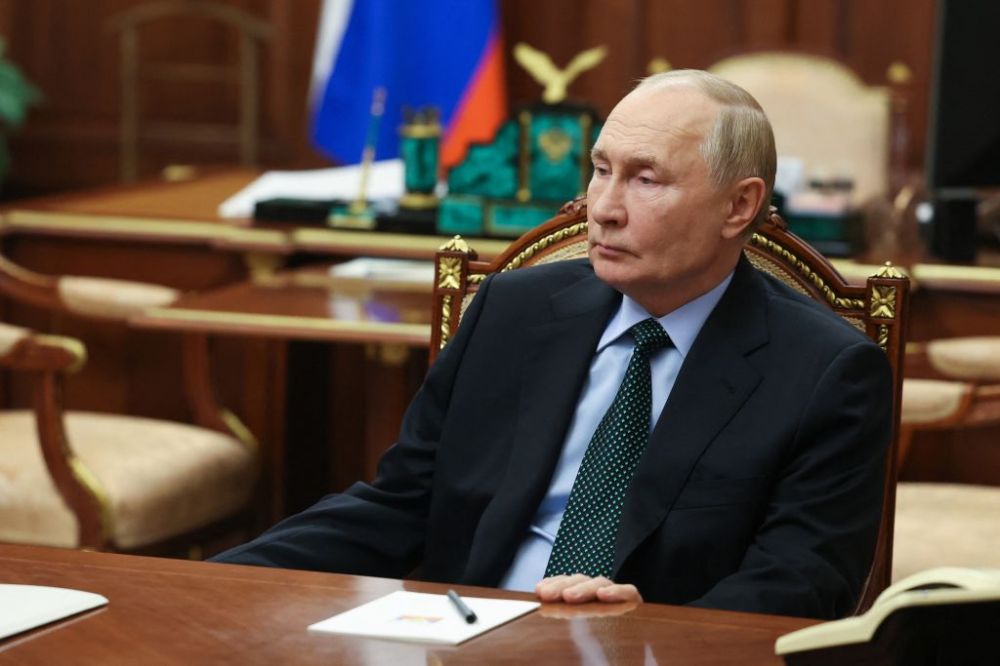

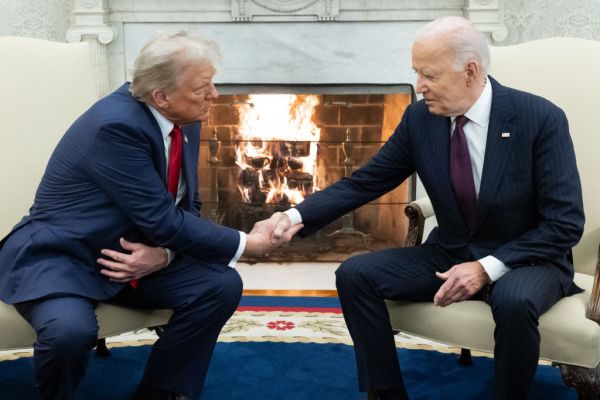
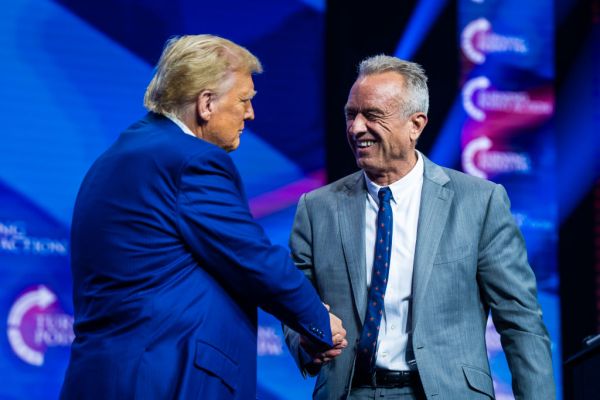
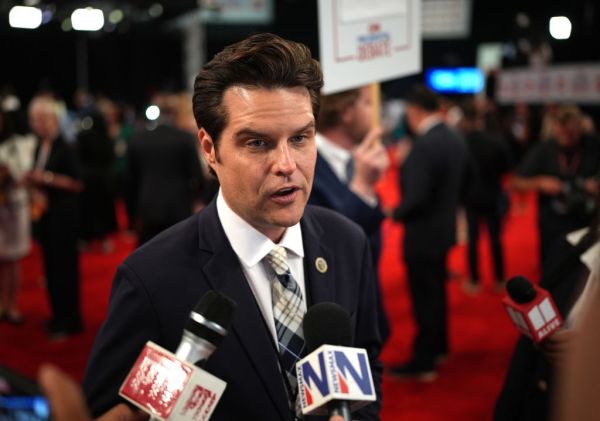

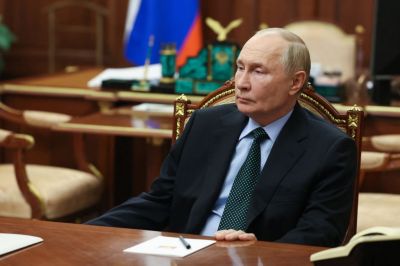
Please note that we at The Dispatch hold ourselves, our work, and our commenters to a higher standard than other places on the internet. We welcome comments that foster genuine debate or discussion—including comments critical of us or our work—but responses that include ad hominem attacks on fellow Dispatch members or are intended to stoke fear and anger may be moderated.
With your membership, you only have the ability to comment on The Morning Dispatch articles. Consider upgrading to join the conversation everywhere.